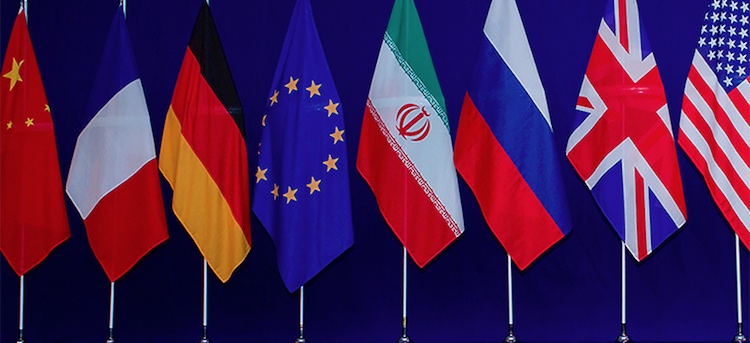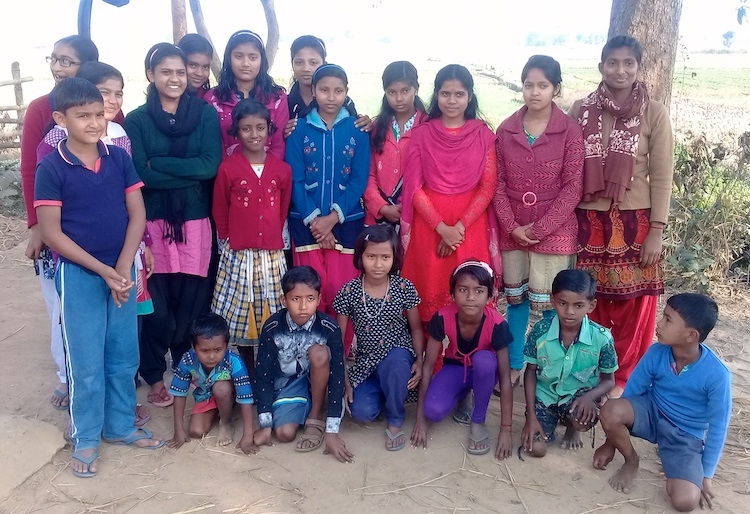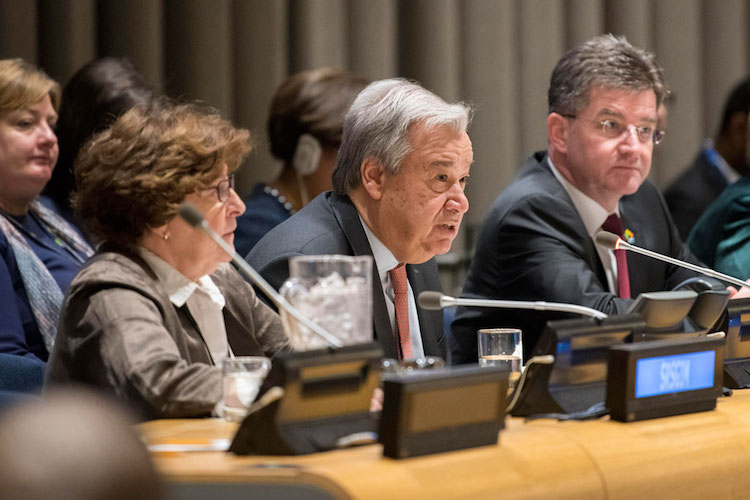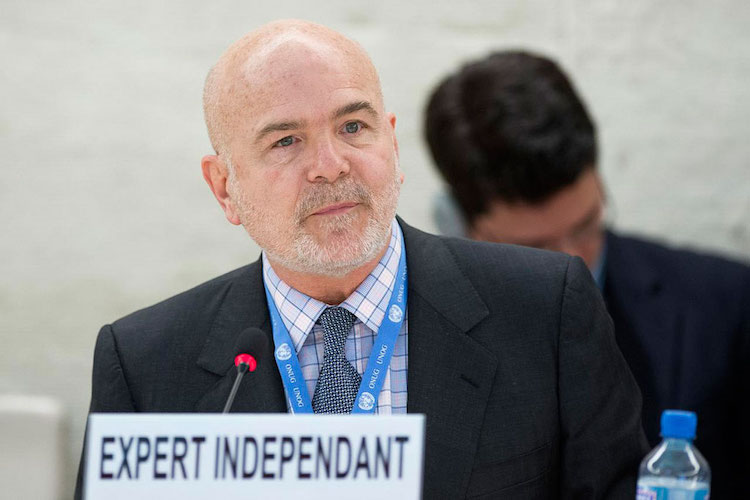By J C Suresh TORONTO (IDN) – One day after the European Union reiterated its commitment to support “the full and effective implementation of the agreement” with Iran, the Trump Administration announced on January 12 that it will continue to waive sanctions on the Islamic Republic in accordance with U.S. commitments under the 2015 nuclear […]
Sustainability Is Developing Community From Within
By Kalinga Seneviratne NAMOKANDA, West Bengal, India (IDN) – Six years ago this remote village of 130 households about 80 km from Santiniketan – the hometown of famous Indian poet Rabindranath Tagore – was a small picturesque village community surrounded by paddy fields, but without a sustainable development concept. Today it is a confident community […]
UN Chief Pleads For ‘Making Migration Work for All’
By António Guterres Following are UN Secretary-General António Guterres’ remarks at the launch of the report ‘Making Migration Work for All’, in New York on 11 January. – The Editor UNITED NATIONS (IDN-INPS) – I am very pleased to be with all of you to present the report “Making Migration Work for All”. This serves […]
Cameroon’s Catholic Bishops Fail to See Eye to Eye on ‘Anglophone Problem’
By Ngala Killian Chimtom YAOUNDE (IDN) – “It was like I was watching a horror movie” is how the bishop of Mamfe diocese in Cameroon’s South West Region described the scene he saw in the village of Kembong village. Mgr Andrew Nkea had visited the village in the wake of the deaths of four soldiers […]
China Strives for UN Reform by Filling the Growing Vacuum Left by the US
By Kacie Candela, PassBlue NEW YORK (IDN) – China has presented its position on United Nations reform, and it aligns with Secretary-General António Guterres’s own agenda. It pushes for practicalities, such as a transparent process, a stronger peace and security pillar, streamlined internal management and more geographic diversity in hiring practices in peacekeeping and the […]
Torture Begets More Brutality
Viewpoint by Jonathan Power* LUND, Sweden (IDN-INPS) – Looking for a good cause for 2018? Something you can do while sitting in your arm chair. Something that needs to be done if we are to live in a “clean” planet. Campaigning against torture is what it is. It can be done by e-mail, s-mail, phone, […]
Let’s Put Order in Tourism and Tourism in Order
Viewpoint by Roberto Savio The writer is publisher of Other News, an eminent proponent of “information that markets eliminate” and founder of IPS-Inter Press Service News Agency. This article is being reproduced courtesy of Other News with the writer’s permission. He can be contacted at utopia@robertosavio.info and his articles and comments can be read on […]
Tribute to Sir Peter Sutherland (April 25, 1946 – January 7, 2018)
By Dr. Purnaka L. de Silva The author is Director, Institute for Strategic Studies and Democracy (ISSD) Malta. VALETTA (IDN) – Humanitarians across the world are mourning the passing of one of the greatest champions for the rights and freedoms of migrants and refugees, Sir Peter Sutherland, UN Special Representative of the Secretary-General for International […]
Donald Trump’s Nuclear Posture Rather Menacing
By Daryl G. Kimball Daryl G. Kimball is Executive Director of the Arms Control Association. This article first appeared with the caption ‘Trump’s More Dangerous Nuclear Posture’. WASHINGTON, D.C. (IDN-INPS) – Just one year ago, Vice President Joe Biden delivered an address touting the progress achieved during the Obama years to reduce the salience and […]
UN Experts Censure Saudi Arabia for Human Rights Violations
By Jaya Ramachandran GENEVA (IDN) – Despite being elected as member of the Human Rights Council at the end of 2016, Saudi Arabia has “continued its practice of silencing, arbitrarily arresting, detaining and persecuting human rights defenders and critics,” according to a group of top United Nations human rights experts. “We are also seeking the […]










